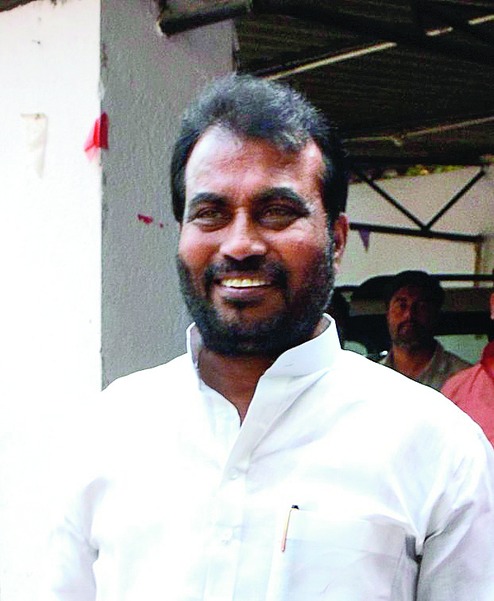

Patna: JDU leader Shyam Rajak on Thursday cited figures to argue that reservation for the upper castes, as being advocated by a number of upper caste leaders from his own party including industries minister Jai Kumar Singh, is not an idea whose time has come.
A few days ago, former JDU Rishi Mishra had said that an amendment should be made to give reservation to the upper caste people who are financially weak.
Another JDU leader, a former MLC who is a party office-bearer, agreed.
"Nobody has guts to take away the reservation of the SC/ST but it is also a fact that poor upper caste needs reservation. There are few people who never talked about the rights of Dalits when they were enjoying ministerial power and after losing the power they have become messiah of Dalits, which is just eyewash," said the JDU leader who spoke under cover of anonymity.
Rajak had a totally different view.
"I have heard a few intellectuals are advocating for reservation for the poor from upper castes but the data prove that the representation of Dalits at the top posts in the government sector is almost nil," said Rajak, the MLA from Phulwarisharif. "In central ministries, at the post of additional secretary, secretary and director, the number of Scheduled Caste officials is 60 and for Scheduled Tribe it is just 24 - out of 747. It means only 15 per cent representation of Dalilts in top posts whereas 85 per cent is occupied by the general category."
Rajak said it is not possible to give reservation to the poor upper caste because Dalits are already struggling to get their quota in the existing system. He pointed out that out of 81 secretary rank officials in the Centre, only two are SC and three are ST. Similarly, out of 70 additional secretaries only four are SC and two are ST. And out of 293 joint secretaries, 21 are SC and seven are ST. According to Rajak, out of 299 director-level officials, 33 are SC and 13 are ST.
Asked about the source of the data, Rajak said the figures are what Jitendra Singh, Union minister of state for personnel, public grievances and pensions, recently tabled in the Rajya Sabha.
"In Group-A central jobs, the percentage of SC is 12.06, backwards is 8.37 and general is 74.48. In Group-B the SC percentage is 15.73, backwards are 10.01 and general is 68.25. In Group-C jobs, SC representation is 17.30 per cent, backwards are 17.31, and general is 57.79. Even in the education sector there is hardly any representation and until we have Dalit vice-chancellors the condition will not improve," Rajak said.
He cited University Grants Commission data - availed through right to information requests, he said - that out of 496 VCs, six are from SC, six are ST and 36 are OBC (other backward classes) and 448 are from the general category.
"It means 89 per cent population consisting of SC, ST and OBC are having just 48 VCs and 11 per cent population have 448 VCs. A similar situation is there in the judiciary as well because after K.G. Balakrishnan who retired on May 11, 2010, no person from SC ever became chief Justice of India. In the last eight years not a single judge in Supreme Court or no chief justice in 24 high courts was Dalit," he said.
He added: "If anybody is feeling bad it cannot be helped but it's a fact that it's not possible to give reservation to the poor from the upper castes."










